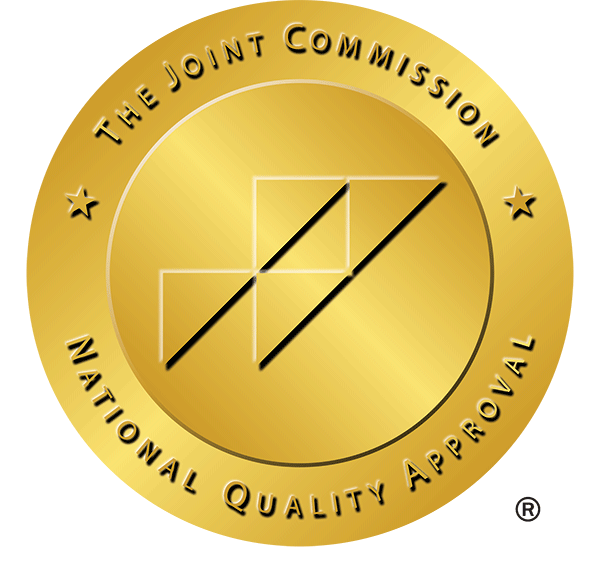Table of Contents
Common Signs of Cocaine Overdose
The National Center for Health and Statistics recorded over 14,600 deaths due to a cocaine overdose in 2018.1 This number keeps rising as the supply of cocaine in the US increases. It is essential to know the signs of cocaine overdose so you can take quick action if someone close to you needs cocaine overdose treatment.
Symptoms of cocaine overdose will include behavior disorders such as anxiety and agitation. Symptoms may also include high body temperature, skin rash, and sweating. Some people dealing with cocaine overdose may have difficulty with breathing and may even experience seizures. Hallucination is another physiological symptom of a cocaine overdose.
Why is Cocaine Overdose on the Rise?
Fentanyl-laced Cocaine
The rise in the number of deaths due to cocaine overdose and cocaine toxicity could be linked to the existence of fentanyl-laced cocaine. Combining cocaine with fentanyl increases the toxicity of the drug significantly. It also improves the potency of the drug.
As it is cheaper to produce fentanyl-laced cocaine than pure cocaine, some drug dealers sell the laced cocaine as pure. Due to the drug’s increased potency, an unsuspecting buyer may purchase it and use a quantity that will create problems, thereby exhibiting cocaine addiction symptoms.
What is Brain Reward System?
Drug Addiction and Brain
The brain has a pathway called the mesolimbic pathway that is aroused by food, sex, and drugs. In a system without drugs, dopamine, an endogenic neurotransmitter, helps the individual transport pleasure feelings to the brain via neurons.3
When these feelings pass, the dopamine is removed from the system by transporters. When cocaine is initiated into a system, it binds with the dopamine, preventing it from being removed and amplifying the dopamine’s effects leading to the advent of cocaine addiction effects.
Anti-reward System
A part of our brains called the habenula drives the anti-reward system.4 This system is responsible for putting a damper on our quest for pleasure. Without this system, we would crave a source of pleasure until it becomes addictive. The use of cocaine blocks the anti-reward system’s actions, which leads to and eventually results in cocaine overdose and cocaine toxicity.
Impact Of The Brain Reward System On Cocaine Withdrawal
When a person’s reward system is over-stimulated and the anti-reward system is suppressed, it leads to an intense desire for the source of a particular pleasurable feeling. This issue is why people who have built a dependence on cocaine exhibit withdrawal symptoms when they cannot access the drug.
Symptoms of Cocaine Use
Patients with cocaine toxicity may exhibit the following symptoms:
- Hypertension
- Headache
- Hallucination
- Paranoia
- Agitation and restlessness
- Hyperthermia
Cocaine Overdose Treatment
If someone overdoses on cocaine, they may need to receive cocaine overdose treatment for several conditions such as central nervous (CNS) and cardiovascular (CVS) complications.5
Benzodiazepines, a class of antipsychotics, have to be administered to take care of the CNS condition. Nitroglycerin and nitroprusside may be administered in cases of severe hypertension that cannot be taken care of with benzodiazepines. Some patients with cocaine toxicity will experience cardiac arrest and have to be treated with vasopressin. Other antipsychotics include non-dihydropyridine calcium channel blockers.
Treatment for Cocaine Addiction
Currently, there is no approved medication for cocaine addiction treatment. However, the following methods have been found to help deal with cocaine withdrawal symptoms and cocaine addiction.
Cocaine Detox
- The first stage is the crash stage which occurs shortly after quitting. In this stage, the person experiences low energy and a large appetite.
- The next stage is the craving stage. This stage can last for a period of up to ten weeks. This period, just as the name implies, is characterized by an intense craving for the drug.
- The extinction stage is the final stage. In this stage, the cravings are only experienced once in a while. The cravings eventually disappear after about thirty weeks.
Therapy
Addiction therapy involves seeking professional help from a psychologist, psychiatrist, or counselor. These professionals will evaluate one’s condition and provide the best advice on how to recover. One such therapy treatment involves motivational incentives. A voucher is drawn up in this treatment, which rewards patients when they abstain from using the substance. Research reveals that people who undergo this kind of treatment can usually handle their cocaine withdrawal and abstain from the drug.6
Another approach to the treatment of cocaine addiction is cognitive-behavioral therapy. This approach involves training the patient to recognize situations that will prompt the use of cocaine and then avoiding these situations. This method is geared towards helping patients stay away from cocaine long-term. It can be used in concert with other forms of treatment for cocaine addiction to reap tremendous benefits and beat cocaine withdrawal symptoms that may lead to re-use.
Therapeutic residences can also be used to treat cocaine addiction. These are unique residences where patients are unable to gain access to the drug. One may be required to remain in a therapeutic residence for up to a year to eliminate dependency on cocaine.
Inpatient/Outpatient Care
Different patients will have different treatment needs based on their exposure to the drug and their period of drug use.7 Some patients will have to receive counseling and treatment in the hospital, while others can be attended to even over the phone. To abstain from the use of cocaine, the individual with the dependence must be committed to living a clean, cocaine-free life.
Resources
- https://www.webmd.com/connect-to-care/addiction-treatment-recovery/cocaine/know-the-signs-of-cocaine-overdose
- https://www.drugabuse.gov/publications/drugfacts/cocaine
- https://www.drugabuse.gov/publications/research-reports/cocaine/how-does-cocaine-produce-its-effects
- https://www.brainfacts.org/brain-anatomy-and-function/anatomy/2019/the-tiny-habenula-plays-a-big-role-in-the-brains-anti-reward-system-022519
- https://emedicine.medscape.com/article/813959-medication
- https://pubmed.ncbi.nlm.nih.gov/21454024/
- https://www.drugrehab.com/addiction/drugs/




